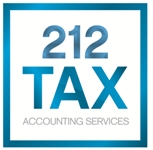As cryptocurrency investing becomes more mainstream, the tax rules around digital assets remain confusing and, in many cases, underutilized. While some investors focus only on gains, others are starting to realize that the losses might be just as powerful, especially at year-end.
At 212 Tax & Accounting, we help business owners, freelancers, and high-income earners take advantage of the crypto rules that still exist today before they’re gone tomorrow.
For more ways to reduce your crypto-related tax burden, check out our YouTube channel.
The Wash Sale Rule Doesn’t Apply to Crypto (Yet)
One of the most overlooked strategies in crypto tax planning is harvesting losses. If your crypto portfolio is down, selling at a loss before year-end could help you offset gains from stocks, real estate, or other investments.
But here’s the key: crypto isn’t subject to the wash sale rule, at least not yet. That means you can sell your crypto at a loss and immediately buy it back, even minutes later. You stay invested in the same asset while locking in a deduction.
This rule allows a level of flexibility you simply can’t get with traditional investments. And yes, it’s still legal.
Use Retirement Accounts to Invest in Crypto-Related Assets
Want to grow your crypto exposure without the annual tax burden? Consider your retirement accounts.
You can’t directly hold Bitcoin or Ethereum in a typical 401(k), but you can invest in crypto-related ETFs, mutual funds, or publicly traded companies like Coinbase or MicroStrategy all inside a traditional or Roth IRA, solo 401(k), or even a cash-value insurance policy.
Depending on the account type, those gains may be tax-deferred or completely tax-free. While this isn’t the right move for every investor, younger individuals with long-term time horizons may find this strategy especially effective.
Long-Term Holding Could Reduce Your Federal Tax Rate
Crypto is treated like property, similar to stocks and real estate. That means if you sell crypto after holding it for 12 months or more, you may qualify for long-term capital gains tax rates, which are generally lower than short-term rates.
Long-term rates at the federal level can range from 0% to 23.8%, depending on your income. However, most states don’t distinguish between short- and long-term gains, they typically treat both as ordinary income.
So if you’re approaching that one-year mark, it may be worth holding a little longer to qualify for the lower federal rate.
Take Action Before Year-End
Crypto tax laws are still evolving, but as of now, these strategies are all completely legal, and they can make a significant difference in your year-end tax planning.
At 212 Tax & Accounting, we work with crypto investors, business owners, and freelancers across New York, Florida, and New Jersey to build tax strategies that fit the current law. We don’t just focus on filing, we focus on helping you make smarter decisions before the year closes.
Call us at 212-475-1040 or visit www.212tax.com to schedule a consultation and learn how to apply these strategies to your specific situation.
Let’s make sure you’re using every tool available to reduce your tax bill, the right way.


